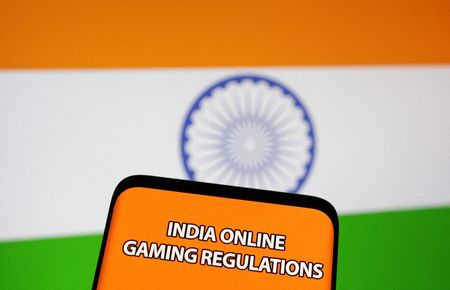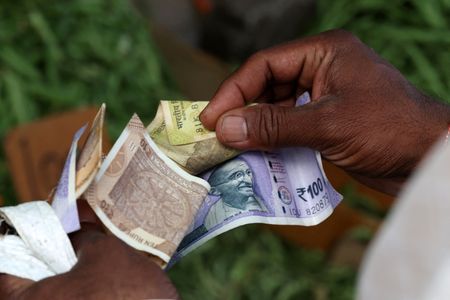By Aftab Ahmed and Aditya Kalra
NEW DELHI (Reuters) -India’s government plans to ban online games played with money, a proposed bill showed on Tuesday, in what would be a heavy blow for an industry that has attracted billions of dollars of foreign investment.
Citing psychological and financial harm it says can be caused by such games, the Promotion and Regulation of Online Gaming Bill 2025 says that no person “shall offer, aid, abet, induce or otherwise indulge or engage in” the offering of online money games and such services.
The 13-page bill, which has not yet been made public but has been reviewed by Reuters, describes an online money game as one played by a user by depositing money in expectation of winning monetary and other enrichment.
The Indian market for such gaming is set to be worth $3.6 billion by 2029, venture capital firm Lumikai says.
Endorsements by top Indian cricketers and other marketing efforts have boosted appeal and investor interest of real money gaming apps such as the popular fantasy cricket games operated by startups Dream11 and Mobile Premier League.
Dream11 commands a valuation of $8 billion while Mobile Premier League is valued at $2.5 billion, PitchBook data shows.
The Indian government has long been concerned about how such games are addictive.
India’s IT ministry, which has drafted the bill, did not immediately respond to a request for comment. MPL and Dream11 declined to comment.
In fantasy cricket games on Dream11, users create their teams by paying as little as 8 rupees (10 U.S. cents), with a total prize pool of 1.2 million Indian rupees ($14,000). The apps become more popular during the Indian Premier League season, one of the world’s most popular cricket tournaments.
The bill states that anyone who offers such money games could face a jail term of up to three years and a fine.
“Such games often use manipulative design features, addictive algorithms … while promoting compulsive behaviour leading to financial ruin,” the bill said.
(Reporting by Aftab Ahmed and Aditya KalraEditing by David Goodman)










